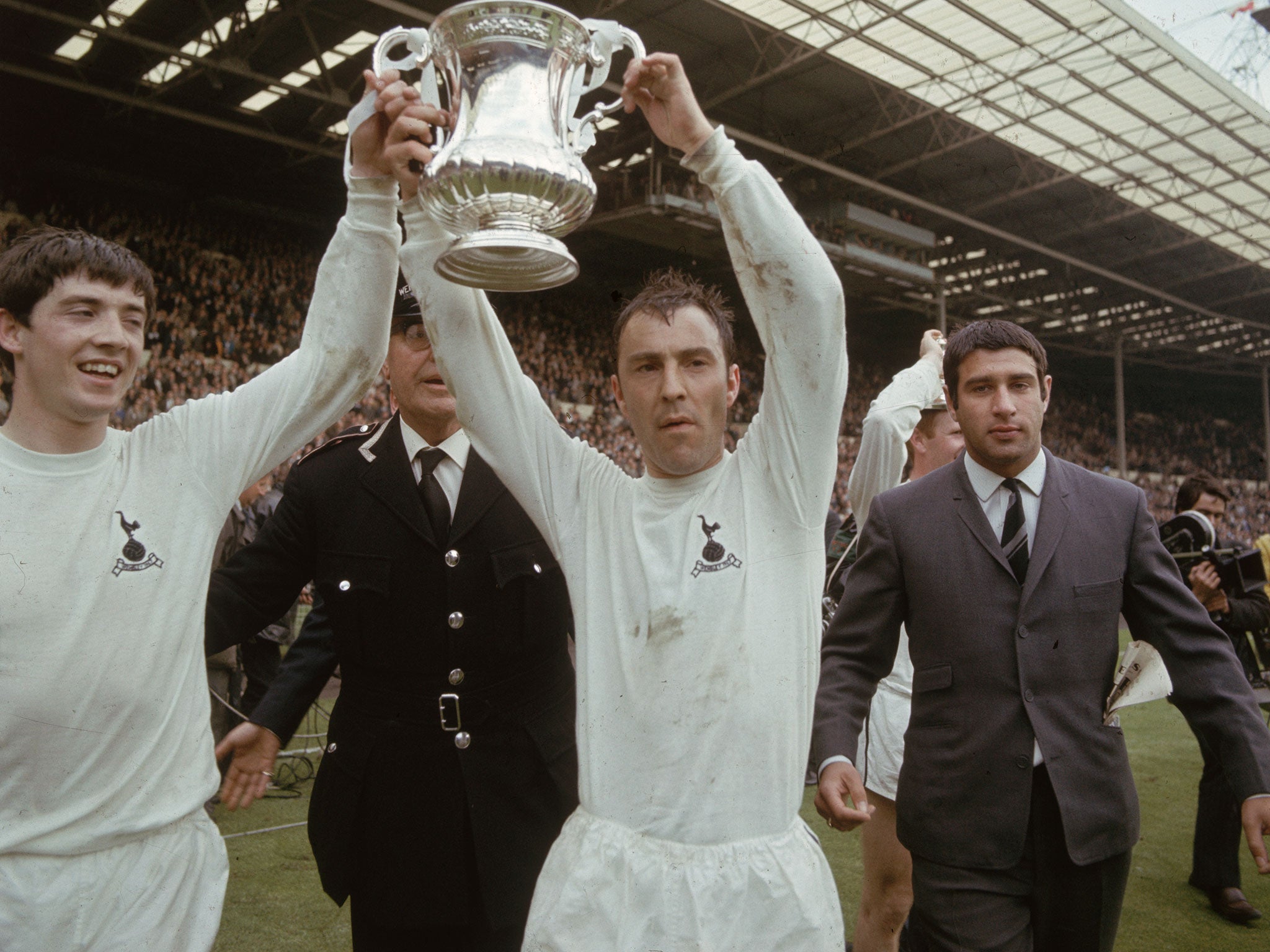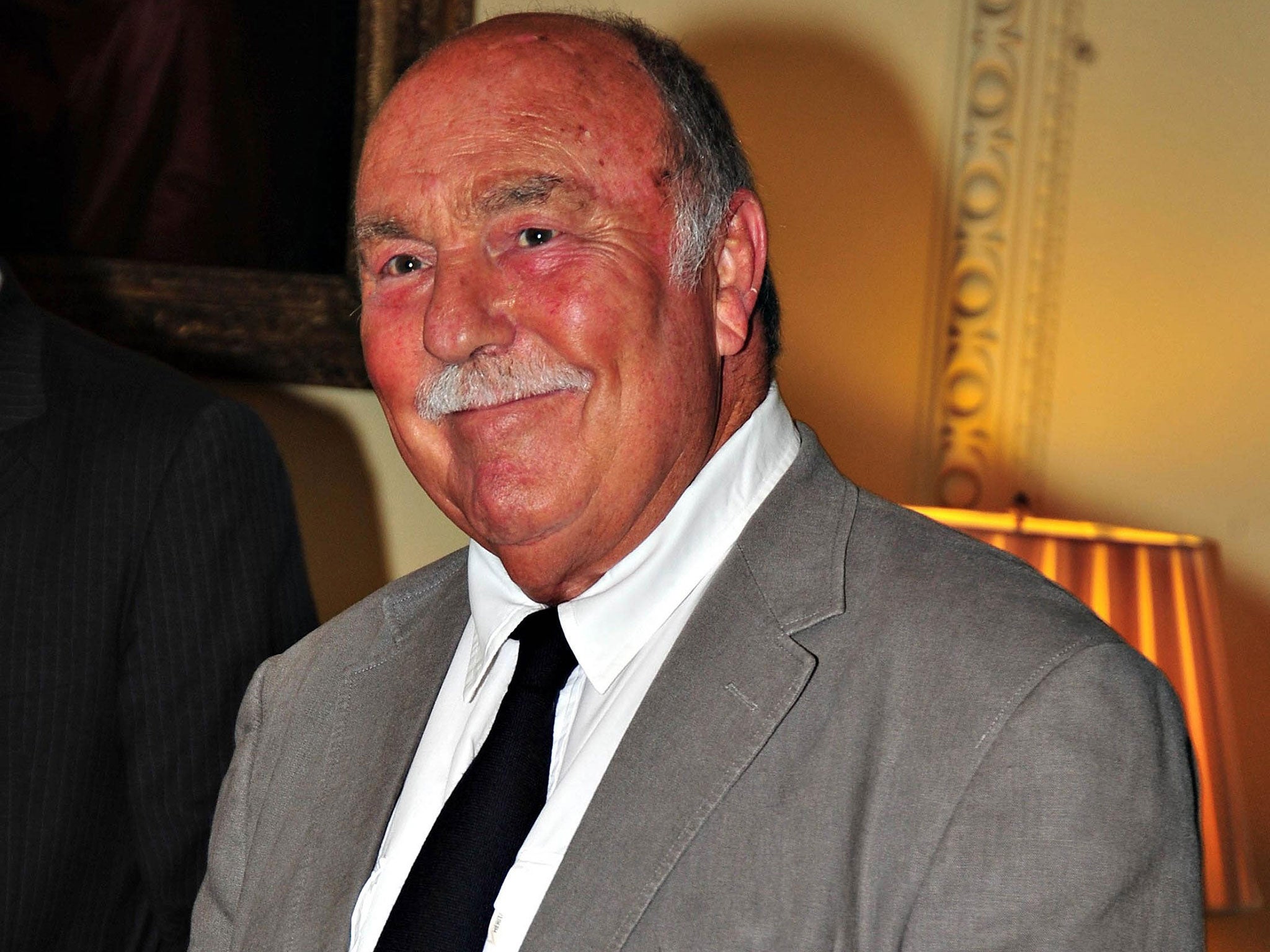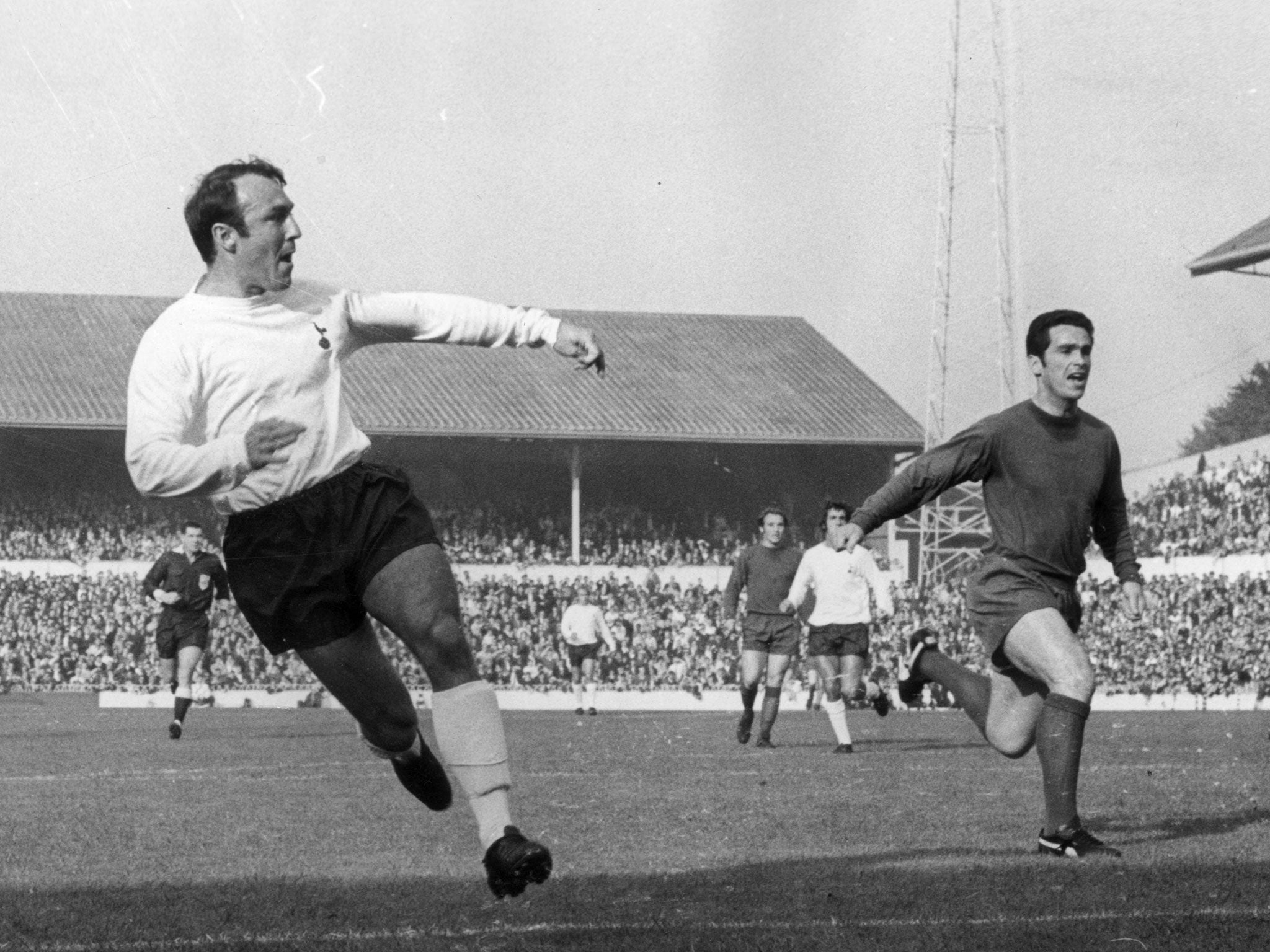Jimmy Greaves: Why all who love football should be grateful for graceful Greaves
The phenomenal goal poacher, now ill in hospital, deserves better than being remembered as a tragic figure, says Robert Chesshyre, who recalls a poignant meeting with the striker

At this volatile political time, the news that a one-time England footballer has had a stroke at the age of 75 seems of somewhat marginal importance. But the plight of Jimmy Greaves, seriously stricken on Sunday, touches a generation of football fans. Never has there been such a goal poacher and seldom a player of such lithe grace: those who saw him in his prime will forever carry mental pictures of his predatory fluency.
Greaves exemplified the “beautiful game” long before that phrase was coined and pressed into overworked service. As a goalscorer, he was without equal, his statistical feats eclipsed only by his flair. A friend had a photo on his wall of Greaves scoring (for Tottenham) an overhead goal of such acrobatic and artistic quality that it would now be played and replayed on Match of the Day.
He scored 44 goals for England in just 57 appearances. Had those ahead of him in the list – Bobby Charlton (49), Gary Lineker (48), and now Wayne Rooney (47) – been as prolific per game as was Greaves, their tallies would have been far, far higher. He scored more goals at the top level than even (thus far) Lionel Messi. Yet Greaves has come down the years as a tragic figure rather than as a golden player.
He missed out (partly through a shin injury which ruled him out of the quarter-final against Argentina) being a member of the victorious 1966 England World Cup side. His replacement Geoff Hurst scored the winner against Argentina, kept his place in the team when Greaves was fit again, scored a famous hat-trick in the final and years later was knighted. Greaves had to wait till 2009 to get his “squad” medal and last winter he was forced (for £44,000) to sell it. After football he fought a long (hugely damaging, though eventually triumphant) battle with the bottle – 20 pints and a bottle of vodka a day at his worst.

He turned pro in the pre-Jimmy Hill age, when players were paid a paltry maximum of £20 a week. To earn more he went to Milan in 1961. Though a pioneering move, it was not a happy time for him. Back then boys from London’s east end like Greaves didn’t even holiday in Spain and he was way out of his comfort zone.
After the savage disappointment of 1966, Greaves played just three more games for England though continued scoring for Spurs and West Ham. But the spark had gone, and he slid sadly out into the football cold, playing for Brentwood, Chelmsford City, Barnet and Woodford Town. On good days he still hit the net, but his weight ballooned as did his intake of booze.
George Best and Paul Gascoigne followed Greaves in their own equally sad alcohol-fuelled declines (Greaves and Gascoigne did a stage double act for a while). The latter-day players lived in the age of celebrity and had far more (almost certainly damaging) attention, and neither beat the demon drink as successfully as did Greaves.
I met him as he emerged from his haze of alcohol. He had just written the story of his drinking, This One’s on Me: an account of four years on the bottle. He last drank on 28 February 1978, just before we met. His businesses had gone, his marriage had gone (later he and his wife resumed the relationship) and he had been in an addiction unit. It was a collapse then associated with boxers rather than footballers.
It was a poignant interview. Greaves made ends meet selling insurance (and looked like a woeful, too-long-on-the-road commercial traveller). He had played in charity matches, but the hundreds of thousands who had watched his genius would have passed him by in the street without recognition. I visited him in his office where he worked part-time (he was paid by results, and therefore – one feared – was unlikely to prosper).

We drank (naturally) tea, and talked about his decline. He mentioned (with scarcely disguised regret) his omission from the World Cup team, but did not (a preservation of self-respect, I thought) seek to pin his alcoholic tumble to that one event. He was more concerned about having retired too soon – “you should play till you drop”, he said. I wondered if I should buy a policy to help him back on his feet, but, lacking faith in a Greaves product, walked out wallet firmly zipped in pocket.
I need not then have worried. A sober Greaves became a football writer and TV pundit alongside former Liverpool striker Ian St John (the Saint and Greavsie show). However, times became hard again, occasioning the sale of his World Cup medal, which in these upside-down times fetched less than half the weekly wages of today’s top Premier League players. Now he fights for his life, and all who care about football should – despite the election excitement – spare Greaves a grateful thought.
Join our commenting forum
Join thought-provoking conversations, follow other Independent readers and see their replies
Comments